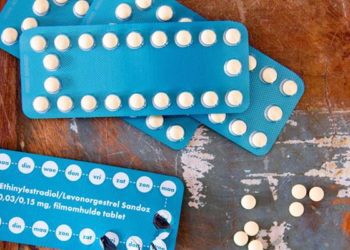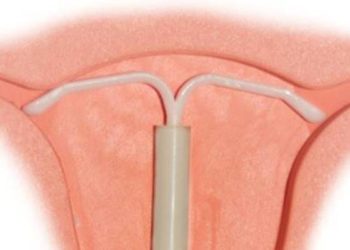IUD, implant may be effective beyond FDA-approved duration
1. Contraceptive implants and hormonal intrauterine devices (IUDs) remained highly effective for four and six years respectively, one year beyond their FDA approved duration of use.
2. In contraceptive implant users, serum hormone levels were adequate for ovulation suppression even after four years of use and did not vary by BMI.
Evidence Rating Level: 1 (Excellent)
Study Rundown: Long-acting reversible contraceptives (LARCs), including IUDs and implants, are the most highly effective yet “forgettable” forms of birth control currently available. Studies have found that both reduce the incidence of unintended pregnancy, primarily because they are not user-dependent. The hormonal intrauterine device (IUD), commercially known as Mirena, releases a small amount of progesterone locally to the uterus to impair the transport and function of sperm and is FDA-approved for five years of use. The subdermal implant, Implanon, is a matchstick-sized rod inserted into the arm that releases etonogestral (a type of progestin hormone) systemically to prevent ovulation and is approved for three years. Preliminary studies in Europe have suggested that IUDs and implants may in fact be effective for longer than their FDA-approved durations, which would prolong their benefits. In this study, researchers report preliminary results assessing whether these two forms of LARC are effective beyond their FDA-approved duration.
At one year beyond their respective FDA-recommended durations of use, the failure rates for the implant and IUD were 0 and 0.51 per 100 women-years respectively. Additionally, in contraceptive implant users, serum hormone levels were adequate to suppress ovulation after both three and four years of use and did not vary by BMI. Strengths of this study include diverse study population and prospective design. Limitations include relatively small sample size, which limits comprehensive assessment of variation by BMI. Replication of results in a larger sample size would confirm the findings presented herein.
Click to read the study Obstetrics & Gynecology
Relevant Reading: Extended use of the intrauterine device
In-Depth [prospective cohort]: Women willing to continue using their contraceptive implant (n=237, 229.4 women-years of follow-up) or levonorgestrel intrauterine device (IUD) (n=263, 197.7 women-years of follow-up) beyond the FDA-approved three- and five-year duration, respectively, were enrolled. This study represents preliminary one-year follow-up from a planned long-term study to evaluate the effectiveness through three years past FDA-recommended duration of use. The primary outcome was unintended pregnancy, calculated per 100 women-years. Secondary outcome included serum etonogestrel levels in implant users across BMI groups.
There were zero pregnancies in the implant group (failure rate=0 per 100 women-years; one-sided 97.5% CI=0-1.61) and one pregnancy in the IUD group (failure rate=0.51 per 100 women-years; 95% CI=0.01-2.82). In implant users, the median serum etonogestrel was similar at three years (188.8 pg/mL) and four years (177.0 pg/mL) of use and did not differ by BMI.
More from this author: Hormonal IUD more effective than copper IUD, Post-partum Implanon offers long-term contraception for high risk women, Social media effective adjunct for contraception education\
Image CC: Blausen.com staff. “Blausen gallery 2014“. Wikiversity Journal of Medicine. DOI:10.15347/wjm/2014.010. ISSN 20018762.
©2014 2 Minute Medicine, Inc. All rights reserved. No works may be reproduced without expressed written consent from 2 Minute Medicine, Inc. No article should be construed as medical advice and is not intended as such by the authors, editors, staff or by 2 Minute Medicine, Inc.





![Reinnervation of cardiac infarcts decreases subsequent arrhythmia incidence [PreClinical]](https://www.2minutemedicine.com/wp-content/uploads/2015/02/1280px-Heart_ant_wall_infarction-75x75.jpg)

